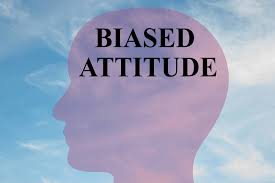“There is also something profoundly liberating about aging,” Dominique Browning wrote in the New York Times. “Only when you hit 60 can you begin to say, with great aplomb, ‘I’m too old for this.’” That’s her new mantra, and the title of her essay, which lingered on the Times’s most emailed list for days. Why? People want stories that ring true to their experience of growing older because they include its welcome aspects.
The essay begins, “There is a lot that is annoying, and even terrible, about aging.” Browning’s right. That’s not what makes the essay ageist. The problem lies in its stereotyping: the underlying assumption that people age in the same way, and that chronological age—rather than the particulars of individual experience—is the engine of personal growth. Like so many people, Browning uses “old” as a placeholder for behaviors or states of mind that are not inherently yoked to age. People discover them at different points in their lives, perhaps in one domain but not another, perhaps not at all. Some people figure stuff out by becoming Buddhists and some when they get divorced. Or come out. Or move to Montana. They’re a function of circumstance or heartbreak or bliss or detachment, not of hitting 60.
Some examples from the essay:
- “…I am too old to try to change people.” I learned that at 18, harshly, when I tried to get my first boyfriend to quit smoking.
- “Now I can spot trouble 10 feet away…and I can say to myself: Too old for this.” How about “too smart”? Trouble assumes countless forms, from playground bullies to troubled grandchildren, and teaches us this painful lesson over and over again.
- “Let others feel bad about their chicken wings — and their bottoms, their necks and their multitude of creases and wrinkles. I’m too old for this.” How about “too confident”? Why wait till menopause to embrace the way we look? A suite of positive-body-image campaigns are helping young women to overcome consumer culture’s punishing script about their “imperfections.”
- “…I’m too old for skintight jeans, too old for six-inch stilettos, too old for tattoos and too old for green hair.” There’s no such thing as “age appropriate” when it comes to fashion or anything else. I wear tighter jeans now than I used to precisely because I grew more forgiving of the bulges that once tormented me. We needn’t become more conservative with age, and we surely shouldn’t collude in becoming less visible. While we’re at it, let’s banish the equation of “old” with “no longer attractive.” “I had been beautiful,” Browning writes. A Google image search confirms that there’s no justification for the past tense.
What Brown is actually describing is wisdom. It’s a word I generally avoid, because the assumption that age confers wisdom is itself ageist. Everyone has encountered the wise child, and plenty of olders have more in common with Mark Twain’s cat. “We should be careful to get out of an experience only the wisdom that is in it and stop there lest we be like the cat that sits down on a hot stove lid,” Twain observed. “She will never sit down on a hot stove lid again, and that is well, but also she will never sit down on a cold one anymore.” The longer we live, the more stoves we’re likely to encounter. The more attention we pay to experience, and the more open our minds, the better our chances of acquiring wisdom along the way.



